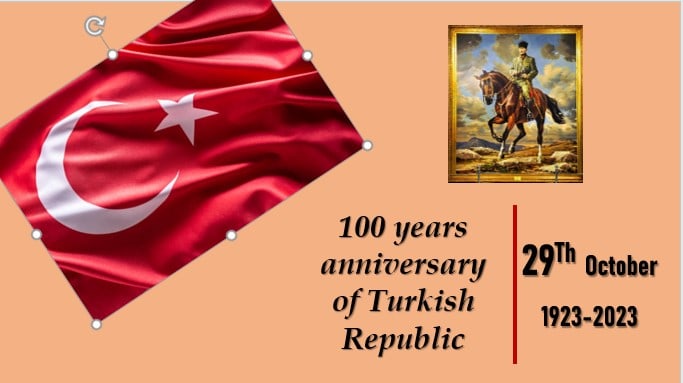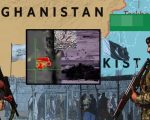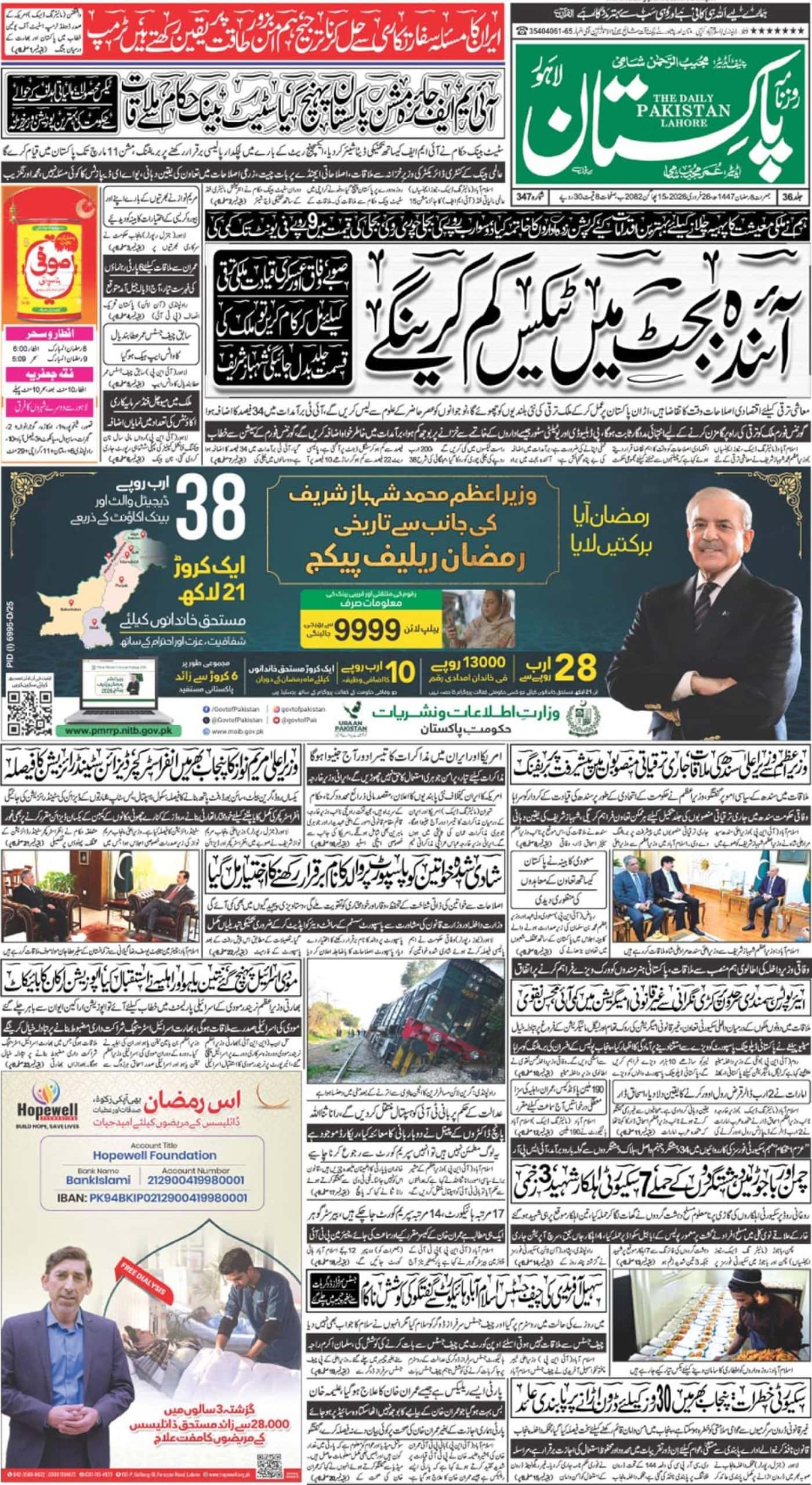Public health is a multidisciplinary field focused on protecting and improving the health of communities, populations, and societies as a whole. It encompasses a wide range of activities and initiatives designed to prevent diseases, promote healthy behaviours, and address the various factors that influence the health and well-being of entire populations.
Public health during the time of the Ottoman Empire, was influenced by the social, cultural, and political dynamics of the region. The Ottomans had various regulations in place to maintain public health. They implemented laws related to food safety, waste disposal, and the cleanliness of streets and public spaces. Ottoman authorities recognized the need for quarantine measures to control the spread of contagious diseases. Ports and cities often had quarantine stations to isolate individuals arriving from areas with outbreaks.
The Ottomans ruled over a vast and diverse territory, and the state of public health varied across time and place. Some of the public health practices and institutions of the Ottoman Empire laid the foundation for modern healthcare systems in the region and their legacy can still be observed in the healthcare systems of the modern countries that emerged from the dissolution of the empire. there were efforts to modernize and reform public health.
Between 1914 and 1923 Türkiye faced a tumultuous period marked by war and conflict. Public health encountered numerous challenges, including disease outbreaks exacerbated by war and overcrowded conditions, limited healthcare infrastructure, and economic instability. Population movements and cultural factors also played a role in public health dynamics. However, as the Ottoman Empire transitioned into the Turkish Republic under the leadership of Mustafa Kemal Atatürk, significant efforts were made to reform and modernize public health. Dr. Refik Saydam, the first Minister of Health played a vital role in shaping Turkish healthcare. Health policies were characterized by centralized planning, integrating preventive and curative care, enhancing medical faculty resources, and combatting infectious diseases. These reforms laid the groundwork for a more structured and comprehensive public health system in Türkiye.
The Hygiene Institution was founded on 27 May 1928 under the name Refik Saydam Hygiene Institution. The pioneer of the Public Health discipline and the visionary behind the establishment of socialized health services in Türkiye was Professor Dr. Nusret Fişek. His distinguished roles included serving as the Undersecretary of Health and as the Director of the Refik Saydam Hygiene Institution. Additionally, he was instrumental in founding the Institutes of Community Medicine (Public Health Institute) and Population Studies at Hacettepe University. These institutions stand as foundational pillars of public health, serving as wellsprings of evidence-based policy reforms and contributing significantly to the development of the public health workforce.
Following the establishment of the World Health Organization (WHO) in 1948, a global perspective on health emerged, with a focus on achieving healthcare standards that encompassed reducing maternal and child mortality, expanding immunization programs, enhancing disease surveillance, and improving access to primary healthcare. These efforts were guided by the principle of health as a fundamental human right and the aspiration of health for all, regardless of location. Being a member of the World Health Organization Türkiye has actively participated in the development and updating of global health objectives. By the time of the new millennium, Türkiye’s healthcare focus was towards achieving public health goals in alignment with global health standards and objectives. Türkiye was increasingly dedicated to bringing its healthcare system in line with international standards and goals, emphasizing the importance of public health and its integration into the global health framework.
In 1998, the WHO’s European Regional Committee adopted the “21 Goals in the 21st Century,” a framework that Türkiye endorsed. In keeping with these goals, Türkiye further advanced its healthcare system, and in 2001, it completed its strategic planning, aligning itself with the health legislation of the European Union. This commitment to international health standards and strategic planning reflects Türkiye’s dedication to enhancing the health and well-being of its population by global health objectives. Maternal and child mortality rates are pivotal indicators of a nation’s health status, primarily due to their preventable nature and their correlation with socioeconomic conditions, access to high-quality medical care, and the effectiveness of public health practices. In the year 2000, Türkiye exhibited remarkable progress in child and maternal health. The estimated number of children under five who lost their lives in Türkiye was fewer than 50, while the global average exceeded 75. Similarly, the estimated maternal death per 100,000 live births in Türkiye was 42, significantly lower than the global rate of 342 deaths. These statistics underscored Türkiye’s commendable achievements in healthcare and outperforming many other nations.
Healthcare indeed played a significant role in the agenda of the AKP (Justice and Development Party) in Türkiye. The AKP government initiated a comprehensive Health Transformation Program in 2003-2008, which aimed to, enhance healthcare accessibility, and improve the overall quality and efficiency of healthcare services. One of the most prominent accomplishments was the introduction of the Health Insurance system, which aimed to provide healthcare services to all citizens, including those who were previously uninsured. Alongside this, a family medicine model was introduced, establishing family health centres as the initial point of contact for primary healthcare services.
Various public health campaigns were launched to promote healthier lifestyles and combat issues like smoking and physical inactivity. By 2011, Türkiye had established itself as a role model for health transformation and healthcare financing. Its successes in these areas were widely recognized and shared with numerous regional countries. Türkiye’s achievements in healthcare served as a valuable reference point for other nations as they shaped and reformed their healthcare programs during this period. Currently, the government is concentrating on renovating and modernizing public hospitals, as well as expanding healthcare infrastructure by constructing new hospitals to increase capacity and enhance services. The digitization of health records was another significant innovation, facilitating better healthcare data management and improving the continuity of care. In parallel, healthcare workforce development efforts took place, aimed at training and expanding the healthcare workforce to meet the growing demand for services.
With the onset of the new millennium, the global community’s focus on health shifted with the advent of the Millennium Development Goals (MDGs) and later the Sustainable Development Goals (SDGs). These frameworks emphasized that the success of health outcomes couldn’t be achieved by a single nation in isolation; a spirit of partnership was necessary to attain global health progress. In response, Türkiye expanded its health agenda from a national public health program to a broader global health program. This change reflected a recognition that achieving overall global health success required collaboration, both regionally and internationally, and underscored Türkiye’s commitment to contributing to the broader global health landscape.
Contemporary Türkiye is actively taking on a leading role in the pursuit of SDGs and is committed to supporting the broader SDG agenda worldwide. This involvement reflects Türkiye’s dedication to addressing various global challenges, promoting sustainable development, and advancing the well-being of populations across the globe.
Armed conflicts significantly disrupt and undermine global health by causing widespread displacement, injuries, and loss of life, as well as damaging healthcare. Due to its strategic geopolitical location in the Middle East, a region characterized by long-standing armed conflicts, Türkiye has undertaken a significant humanitarian role. Not only does Türkiye host refugees, but its government and humanitarian agencies also provide vital health assistance in the form of field hospitals and human resources to countries facing conflicts and crises, such as Afghanistan, north-west Syria, Ukraine, Palestine, and conflict-affected African nations. This proactive engagement reflects Türkiye’s commitment to alleviating the health-related hardships faced by populations in regions enduring protracted conflicts.
Türkiye has spent $30 billion on the refugee crisis in Syria since 2011. Türkiye’s provision of healthcare to more than 3.6 million Syrian refugees has provided critical lessons in the field of global health. This experience underscored the humanitarian responsibility to ensure healthcare access for vulnerable populations, regardless of their nationality. Türkiye’s health infrastructure demonstrated the need for resilience and adaptability when facing large-scale health crises. Moreover, a culturally sensitive healthcare system becomes evident by understanding the cultural and linguistic diversity of the refugee population. An important lesson for the global community is the imperative of providing comprehensive preventive and clinical healthcare that addresses both physical and mental well-being without any compromise in meeting the needs of the local population.
Natural disasters can have profound and far-reaching impacts on global health, underscoring the need for effective disaster preparedness, response, and recovery strategies to safeguard populations. Türkiye holds the unfortunate distinction of ranking third globally in terms of earthquake-related casualties and eighth concerning the total number of people affected by earthquakes. The country experiences at least one earthquake with a magnitude of five or higher each year. The Disaster and Emergency Management Authority (AFAD) in Türkiye plays a crucial role in disaster prevention, minimizing damage caused by disasters, planning and coordinating post-disaster responses, and fostering collaboration among different government agencies. To address the complex challenges posed by disasters, the authority introduced an innovative disaster management model known as the Integrated Disaster Management System. This model signifies Türkiye’s shift from crisis management to risk management, focusing on proactively identifying and mitigating risks to enhance disaster preparedness and response. Over the past several years, AFAD has effectively coordinated Türkiye’s response to devastating earthquakes, floods, and other disasters, aiding survivors in rebuilding their lives. Internationally, AFAD has undertaken successful missions to provide humanitarian assistance to more than 50 countries across five continents, including Palestine, Ecuador, Nepal, Philippines, Yemen, Somalia, Chad, Mozambique, and many others. The “Stratcom Disaster Communication Forum,” organized by the Presidential Directorate of Communications, served as a crucial platform for foreign experts and academics to convene and exchange their insights in the aftermath of the devastating earthquakes that struck on February 6, 2023. The forum facilitated international discussions on disaster communication, offering a valuable global perspective on this critical issue.
Türkiye occupies a distinctive role as both a major donor and recipient of humanitarian assistance for purchasing and shipping resources to humanitarian operations. The World Food Programme recognizes Türkiye as a leading partner in the global effort to combat hunger, highlighting the country’s multifaceted involvement in addressing humanitarian challenges. African nations, grappling with the effects of global climate change, have heavily relied on Ukrainian grain exports to meet their food needs. However, the Russian invasion of Ukraine in February 2022 resulted in the complete cessation of maritime grain shipments from Ukraine, through the Black Sea. The Black Sea Grain Initiative, brokered by Türkiye and the United Nations in July 2022, enabled ships carrying fertilizers and agricultural products to navigate carefully designated paths, avoiding mines and passing Russian warships as they headed for Türkiye’s Bosporus strait. As a result of this agreement, approximately 32.8 million tonnes of Ukrainian corn, wheat, and other grains were exported since its signing last year, with over half of this grain destined for developing countries.
The COVID-19 pandemic has underscored the crucial importance of a public health approach that prioritizes prevention and the achievement of universal health coverage in all countries. Despite the numerous challenges posed by this pandemic, it has catalyzed the importance of global cooperation in the realm of healthcare. Türkiye has received praise for its exemplary efforts in combating the novel coronavirus pandemic. With the presence of a national influenza pandemic plan and the availability of both human and structural resources, the country effectively ensured the provision of healthcare services at all levels, extending not only to its 84 million residents but also to nearly 4 million refugees. Almost everyone, including legal and illegal refugees, received access to all healthcare services without any discrimination, and these services were provided free of charge. At a time when many countries were grappling with resource constraints to provide healthcare to their populations, the Turkish Health Ministry emerged as a leading example of global cooperation. Türkiye extended its support to 160 countries from the onset of the COVID-19 pandemic in early 2020. This assistance was not limited to any specific region, as Türkiye reached out to a diverse array of nations, including but not limited to the United States, Germany, China, the United Kingdom, Russia, Italy, Spain, Norway, Nigeria, Somalia, and Mexico. These efforts were undertaken to contribute to global health and assist fellow countries in their response to the COVID-19 pandemic.
The aid extended by Türkiye encompassed a wide array of support, including the donation of medical equipment and devices such as protective gear, diagnostic kits, medicines, and respirators. Additionally, it involved financial assistance and facilitation of purchase/export permits to further enhance the global health response to the pandemic. Türkiye also made substantial contributions to the global development of coronavirus vaccines. Turkish researchers actively participated in numerous phase 2 and phase 3 research studies, playing a crucial role in advancing the research and development of COVID-19 vaccines. Another significant milestone was the development of a national COVID-19 vaccine “Turkovac” in Türkiye. In addition to achieving this feat, Türkiye has also been able to generously donate more than 600,000 vaccine doses to other countries, thereby contributing to the global effort to combat the pandemic.
Education is indeed a crucial determinant of health, and its significance is emphasized in various global development goals. The Turkish Maarif Foundation is Türkiye’s new diplomatic initiative in education, taking on a crucial role in providing education to children and adolescents in various developing countries, notably in sub-Saharan Africa. It achieves this through a network of schools managed by dedicated educational professionals. The foundation operates more than 460 educational institutions and 36 student dormitories in 67 different countries, educating over 50,000 students. With an annual budget approaching 109 million US Dollars, it plays a significant role in advancing education on a global scale.
This commitment to providing education contributes to improving overall health outcomes by empowering individuals with knowledge and skills to make informed decisions about their well-being, ultimately fostering a healthier and more prosperous future for these regions. Furthermore, the Turkish international scholarship program funded by the Presidency for Turks Abroad and Related Communities (YTB) plays a significant role in strengthening the global health workforce. The program supports various fields of education, including professional medical and dental education, midwifery, and nursing education. Additionally, it offers opportunities for master’s and PhD-level education in public health, health economics, health management, and biomedical engineering. By providing nearly 16 million US Dollars per year in scholarships, Türkiye contributes to building a skilled healthcare workforce, vital for addressing healthcare needs and advancing global health objectives. Currently, many universities in Türkiye offer postgraduate education programs in global health, with a specific focus on admitting students from low and middle-income countries. This initiative reflects Türkiye’s commitment to fostering international collaboration and knowledge exchange in the field of global health, thereby contributing to the development of healthcare capacity in regions facing various health challenges.
In the past century, Türkiye has witnessed remarkable socio-economic development, and it continues to make significant strides towards a more prosperous future. Türkiye recognizes the interdependence of economic and social development with global environmental protection, aligning its progress with sustainable and responsible practices. The 1982 Constitution of Türkiye acknowledges the fundamental right of all Turkish citizens to a healthy environment. Additionally, Türkiye is a signatory to essential international environmental conventions that establish comprehensive policy frameworks at national and global levels to tackle environmental challenges. This dual commitment, through constitutional recognition and international agreements, underscores Türkiye’s dedication to promoting and safeguarding a healthy environment for its citizens and contributing to global environmental protection.
Türkiye has made notable advancements in several key environmental indicators, including waste management, noise control, industrial pollution control, risk management, forestry, erosion control, and the quality of its water and air. Furthermore, Türkiye’s historical contribution to the accumulation of Greenhouse gas emissions emissions in the atmosphere is notably low. Türkiye has achieved low levels of per-capita greenhouse gas emissions compared to other Organization for Economic Cooperation and Development (OECD) countries.
Additionally, its emissions per unit of Gross domestic product (GDP) are below both the OECD and world averages. This reflects Türkiye’s efforts in maintaining a relatively low carbon footprint and its contributions to mitigating climate change, which are essential in the global context of addressing environmental challenges. Türkiye’s geographical position encompasses various biogeographic regions, and microclimates, that’s makes Türkiye rich in terms of both flora and fauna species. Türkiye’s significance lies in its role as the crossroads of the Mediterranean and Near Eastern gene centres, highlighting the importance of its genetic diversity within the global context. This biological richness underscores the need for comprehensive conservation efforts to protect and preserve Türkiye’s unique biodiversity.
Present Türkiye has also emerged as a global leader in health tourism, attracting a growing number of foreign patients seeking medical treatment. In the preceding year, Turkish hospitals welcomed more than 642,000 foreign patients, contributing to a substantial revenue increase, which reached 2 billion US Dollars. What sets Türkiye apart is its ability to provide healthcare services at a fraction of the cost compared to many Western countries, making it an economically attractive option for medical tourists. Furthermore, Türkiye has seen a proliferation of accredited health institutions that meet international standards. This ensures patients’ experiences are marked by both quality and safety, bolstered by state-of-the-art medical technology and the expertise of highly skilled healthcare professionals.
The cost-effectiveness of healthcare in Türkiye extends its benefits beyond its borders, as people from neighbouring countries also benefit from the lower cost of medicine and medical treatments available in Turkish healthcare facilities. This accessibility to affordable healthcare services makes Türkiye a favourable destination for individuals seeking quality medical care while minimizing their healthcare expenses. As a result, Türkiye’s healthcare system has a positive regional impact by offering accessible and cost-effective healthcare options to its neighbouring countries.
Over the past century, Türkiye has transitioned from being a recipient of humanitarian aid to becoming a significant donor. This transformation reflects Türkiye’s unwavering commitment to humanitarian assistance, as demonstrated by the Global Humanitarian Assistance Report of 2018, which highlighted Türkiye as the leading contributor to humanitarian aid, with a substantial contribution of 8.07 billion US Dollars in 2017. The Turkish Cooperation and Coordination Agency (TİKA), is responsible for coordination and reporting of Türkiye’s development aid. It has progressively expanded its operations to reach nearly 170 countries worldwide.
With more than 2,000 projects and activities annually, TİKA takes a transparent and sincere approach to development, emphasizing that development is not solely measured by economic aspects but also hinges on the preservation, sustainability, and enrichment of social and cultural values. TİKA’s efforts span various sectors, including healthcare, where they provide healthcare devices, conduct health screenings, perform surgical interventions, establish health laboratories, and construct, renovate, and equip hospitals and health facilities. In the agriculture, forestry, and fishing sectors, TİKA supports various initiatives, including the provision of equipment, vehicle assistance, saplings, seeds, and animal support, along with the training of experts. Water and water hygiene projects encompass the construction and repair of water wells and tanks, the distribution of equipment and tools, and personnel training support. In 2022, there was an expenditure of nearly 29 million USD on various projects and activities coordinated by TİKA.
Türkiye has maintained its position as the “most generous nation” worldwide, exemplified by a commendable 0.85% ratio between its national income and humanitarian assistance. This transition underscores Türkiye’s dedication to alleviating the suffering of those in need and making a meaningful impact on global humanitarian efforts. Various national organizations, including TIKA, AFAD, YTB, and the Turkish Red Crescent, as well as numerous non-governmental organizations such as the Humanitarian Relief Foundation (IHH), World Doctors Association (Yeryüzü Doktorları Derneği), Turkish Green Crescent, and Alliance of International Doctors (AID), play pivotal roles in shaping global health. These organizations are instrumental in providing humanitarian assistance, medical support, and health-related initiatives on a global scale, contributing significantly to efforts aimed at improving public health and well-being worldwide.
In a concerted effort to enhance global health and collectively pursue sustainable development goals, Türkiye has extended its support to numerous international organizations. These include the United Nations Children’s Fund (UNICEF), the UN Office for the Coordination of Humanitarian Affairs (OCHA), the Caribbean Community (CARICOM), the Central American Integration System (SICA), East Africa’s Intergovernmental Authority on Development (IGAD), the African Union, Pacific Islands Forum (PAF), International Federation of Red Cross and Red Crescent Societies (IFRC), UN Relief and Works Agency for Palestine Refugees in the Near East (UNRWA), the World Bank, and the WHO. This collaborative engagement demonstrates Türkiye’s commitment to global health and its participation in the international community’s efforts to address health-related challenges on a global scale.
In the coming century, Türkiye is poised to play a pivotal role in public health and global health. With a legacy of significant achievements in healthcare and a commitment to advancing health outcomes, Türkiye will continue to lead by example. Its expertise in humanitarian aid, refugee health, disaster management, pandemic response, environmental protection, health education, research and medical tourism will expand, benefiting not only its citizens but also populations around the world. Türkiye’s strategic geographic location will remain instrumental in addressing global health challenges. Moreover, Türkiye’s role in shaping global health and contributing to the Sustainable Development Goals will further solidify its status as a key player in public health and global health efforts in the next 100 years and beyond. Indeed, health challenges are dynamic and never-ending, despite the progress made. The field of public and global health constantly confronts evolving issues, underscoring the necessity for innovation, and international cooperation.
This persistence of health challenges highlights the need for the development and implementation of new Turkish public health policies and global health policies. These policies must be adaptive and responsive to emerging threats and encompass a broad spectrum of health issues. Progress in healthcare is essential, but the resilience to adapt and respond to new challenges, as guided by forward-looking policies, is equally vital in ensuring the continued betterment of the health of the national and global population.














